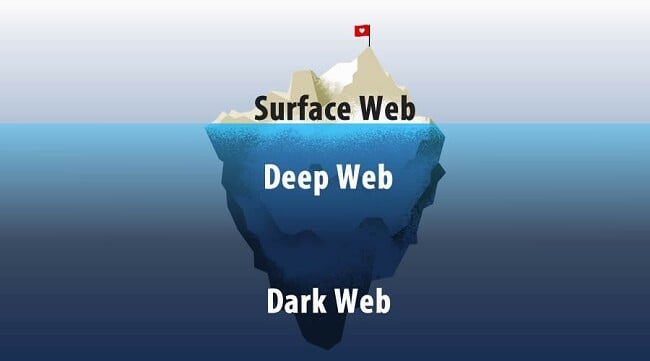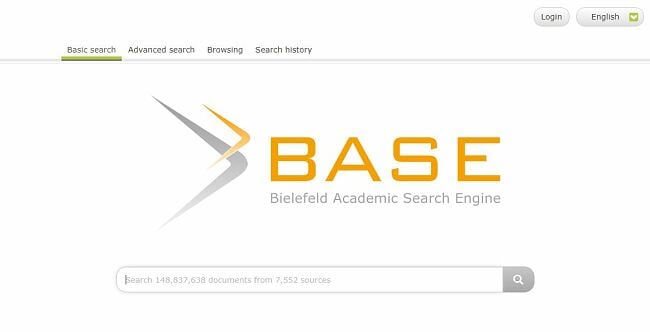Guide to Using the Deep Web for Legitimate Academic Research
Whether you’re a postgrad looking to find some original source material for a research paper, or you’re a seasoned journalist, scientist or career academic, it can be an uphill battle to find hyper-specific, niche research through Google.

That’s why many academics turn to the Deep Web to find the latest scholarly articles on just about every discipline out there. Read on to learn more about where to find the top research sites. I’ll also walk you through on how to use a VPN to safely access all the best databases and scholarly websites for your research. Editor’s Note: We value our relationship with our readers, and we strive to earn your trust through transparency and integrity. We are in the same ownership group as some of the industry-leading products reviewed on this site: ExpressVPN, Cyberghost, Private Internet Access, and Intego. However, this does not affect our review process, as we adhere to a strict testing methodology.
Do Academics Really Use the Deep Web?
You may be wondering if it’s safe to use the Deep Web — I understand your reluctance.
Like many, you’re thinking of what’s known as the Dark Web. The Dark Web is technically a smaller component of the Deep Web, and it’s the realm of some pretty unsavory content, like the famous Silk Road from years ago, and much worse. More on that later, but first, let’s understand how the Deep Web helps academics find the best research online.
How Is the Deep Web Different from the Regular Web?
Here’s the distinction: the Deep Web is simply online content that’s not indexed by a search engine like Bing or Google. That’s why you also hear it referred to as the “Invisible Web” or the “Hidden Web.” The standard web is also referred to as the “Surface Web,” and that’s where we can find all of our social media, blogs, email, banking, Netflix, even websites like Wizcase.
Our experts suggest that the Deep Web is incredibly vast, estimated to be at least 500 times larger than the surface web. This hidden part of the internet can be likened to a massive iceberg, with the majority of its content concealed beneath the surface in the invisible realms of cyberspace.
Traditional search engines use simple but sophisticated algorithms to search out data to find and rank pages with the most relevant keywords, hyperlinks, tags, URLs, and other factors known as “metadata.”
Google scrapes together web pages through “spider-crawls” of the Surface Web, based on keywords. That’s why content writers focus so intently on “SEO” or Search Engine Optimization, because Google notices specific keywords.

For any subject matter you can think of, there is a corresponding number of repositories and search engines structures to ferret out content from the depths of the invisible web.
To access Deep Web content, you have to pull directly from the source (like a professional publication’s archives), or from a specialized Deep Web search engine — both of which we’ll discuss more below. I’ve included plenty of useful examples to help you find what you need in any subject.
The Difference Between the Deep Web and Dark Web
You’ve probably heard of the controversial and scary side of the Internet, known as the Dark Web. The U.S. Congressional Research Service explains that the Dark Web can be used for legitimate purposes, but its reputation is made infamous for sheltering and disguising the identities and payment data of criminals.

Famously, the Silk Road online marketplace was seized and shut down by the FBI after it was found that the hidden site was offering illegal drugs, guns, and other unlawful transactions. The Dark Web is typically accessed using a Tor browser that can open super-encrypted “onion” sites, which are hidden and accessed differently than Deep Web sites.
What law enforcement describes as the Dark Web is where people find illegal content, but you’re not in any danger of accidentally accessing “hitman-for-hire” while you search for the latest medical journals on diabetes.
What Kind of Deep Web Content Is Useful for Research?
- Academic studies
- White papers
- Professional blogs
- Corporate databases
- Protected images (i.e. patent drawings, copyrighted photos, etc.)
- Directories
- E-books
- Bulletin boards
- Archived multimedia
The Easiest Ways to Search the Deep Web
Below, I’ve itemized some of the most helpful ways to search the Deep Web and specific repositories to find all the information you need — everything from government archives to compendiums of news data to medical journals, and more.
Because the Deep Web is more decentralized than the Google-indexed content, it can take some practice to find what you need.
Deep Web Search Engines
BASE is one of the Internet’s more powerful and content-rich Deep Web search engines. It provides over 150 million documents pulled from over 7,000 Deep Web resources. It’s a large archive of the best academic reports on the hidden web.

If you prefer a more focused search, I’ve cataloged a list of subject-specific databases to help you find research by category.
- Art and design: The·Smithsonian search engine offers a wealth of cultural, historical and arts-focused content.
- Business: BPubs offers more than 200 free business and trade publication sources.
- Legal and social resources: LexusNexis is a well-known warehouse of over 30 terabytes of legal documents and research available for academics and journalists, with a paid subscription.
- Healthcare: New England Journal of Medicine is the world’s foremost medical journal website. It hosts only the most credible, peer-reviewed research and offers both free and paid content access.
- Government archives: Archives.gov is the online version of the U.S. National Archives — home to the most important legal and historical government documents that benefit the public.
- Academic: JSTOR is a respected digital library of academic content in many formats, with collections of peer-reviewed scholarly journals as well as the leading literary journals, research reports and all the primary sources you need for quality research and citations.
- Scientific: Cornell University’s Arxiv.org is a comprehensive and technical repository for papers on everything from computer science to qualitative finance.
Staying Safe While on the Deep Web
Now that I’ve established that the Deep Web is not the bogeyman you may have assumed, you may be asking why you’d need a VPN. The answer is that VPNs are important cybersecurity tools that can benefit everyone. They protect you regardless of whether you’re using the Surface Web or the Deep Web. It keeps your identity anonymous, your data encrypted and your financial details locked away from potential hackers.

How to Find Free Content or Avoid Paywalls
Part of the reason much of this content is unlinked and unsearchable through surface search engines is the need to protect content behind paywalls. And they do so with good reason. Just like you are putting in days or even weeks of hard work writing and researching, so too did the original writers. And these websites have enormous bandwidth costs to host millions of articles, journals and often graphics-heavy publications.
The downside is that for students hunting for peer-reviewed, professional-quality content, those articles can come with a hefty price tag. Some charge per article, while others offer monthly subscriptions for unlimited content.
If you want to bypass paywalls, here are a few options:
- Use Google Chrome’s Browser Extension — Unpaywall. What this does is search for duplicate copies of paid content that may exist elsewhere for free.
- Use a VPN. By masking your computer’s and server’s identity, VPNs can help you access restricted content while keeping your data secure and private. For sites that limit you to one free article per day, the VPN can change your identity so the website thinks you’re a series of new users and — voila! — endless free articles.
- Search an Open Source academic database. There are plenty of free repositories of professional-quality studies, reports, news, and other content you can use for your academic research.
Conclusion
The Deep Web is home to plenty of useful material, but the trick is, you have to use a specific search tool that’s often hidden behind a paywall or restricted to certain professional users.
I hope this overview has given you all the knowledge, steps, and resources you need to safely surf the Deep Web and to find all the best research available online.




Leave a Comment
Cancel